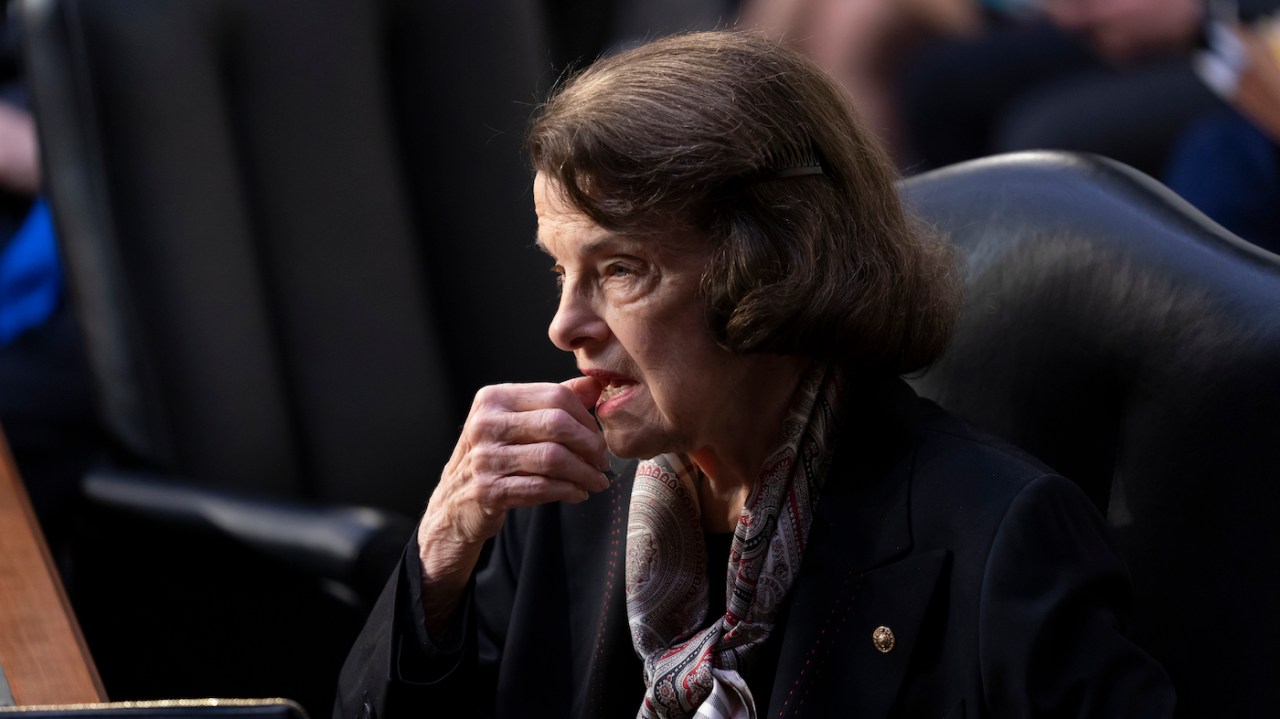lpetrich
Contributor
Back to Rebecca Traister at The Cut.
Then DiFi's long career. She started out in 1961 the California women’s-parole-and-sentencing board, and she sentenced a lot of abortion providers, since abortion was illegal back then. These were “all illegal back-alley abortionists. Many times, the women that they performed an abortion on suffered greatly. I really came to believe that the law is the law.”
Her memories of back then were good. “Under the indeterminate-sentence law, most sentences carried a low of maybe six months and a high of ten years,” and “There was one case, her name was Anita Venza. And over and over, she committed abortions on women. I said when we were sentencing her, ‘Anita, why do you continue doing this?’ And she said, ‘I feel so sorry for women in this situation.’ ”
Nevertheless, DiFi had continued to sentence AV.
What sick happy talk. She doesn't seem very aware of what is going around her.Reached by phone two days after 19 children were murdered in an elementary school in Uvalde, Texas, in late May, Feinstein spoke in halting tones, sometimes trailing off mid-sentence or offering a non sequitur before suddenly alighting upon the right string of words. She would forget a recently posed question, or the date of a certain piece of legislation, but recall with perfect lucidity events from San Francisco in the 1960s. Nothing she said suggested a deterioration beyond what would be normal for a person her age, but neither did it demonstrate any urgent engagement with the various crises facing the nation.
“Oh, we’ll get it done, trust me,” she assured me in reference to meaningful gun reform. Every question I asked — about the radicalization of the GOP, the end of Roe, the failures of Congress — was met with a similar sunny imperviousness, evincing an undiminished belief in institutional power that may in fact explain a lot about where Feinstein and other Democratic leaders have gone wrong. “Some things take longer than others, and you can only do what you can do at a given time,” she said. “That doesn’t mean you can’t do it at another time. And so one of the things that you develop is a certain kind of memory for progress: when you can do something in terms of legislation and have a chance of getting it through, and when the odds are against it, meaning the votes and that kind of thing. So I’m very optimistic about the future of our country.”
Then DiFi's long career. She started out in 1961 the California women’s-parole-and-sentencing board, and she sentenced a lot of abortion providers, since abortion was illegal back then. These were “all illegal back-alley abortionists. Many times, the women that they performed an abortion on suffered greatly. I really came to believe that the law is the law.”
Her memories of back then were good. “Under the indeterminate-sentence law, most sentences carried a low of maybe six months and a high of ten years,” and “There was one case, her name was Anita Venza. And over and over, she committed abortions on women. I said when we were sentencing her, ‘Anita, why do you continue doing this?’ And she said, ‘I feel so sorry for women in this situation.’ ”
Nevertheless, DiFi had continued to sentence AV.
Doesn't seem like much of an answer.But did Feinstein feel for her? “Oh, yes,” she replied. “But she was a dedicated … She was going to continue to do it. There’s no question. She had been in state prison and been paroled and was brought back.”
When I pushed further, asking Feinstein what it felt like now to be on the verge of a future in which providers like Venza could once again be sentenced to prison, and in which the law will once again be the law, she declined to fully acknowledge the chilling implications of the rollback on the near horizon, retreating instead behind impenetrable platitudes. “Well, one thing I have seen in my lifetime is that this country goes through different phases,” she said. “The institutions handling some of these issues have changed for the better. They’ve become more progressive, and I think that’s important.”

